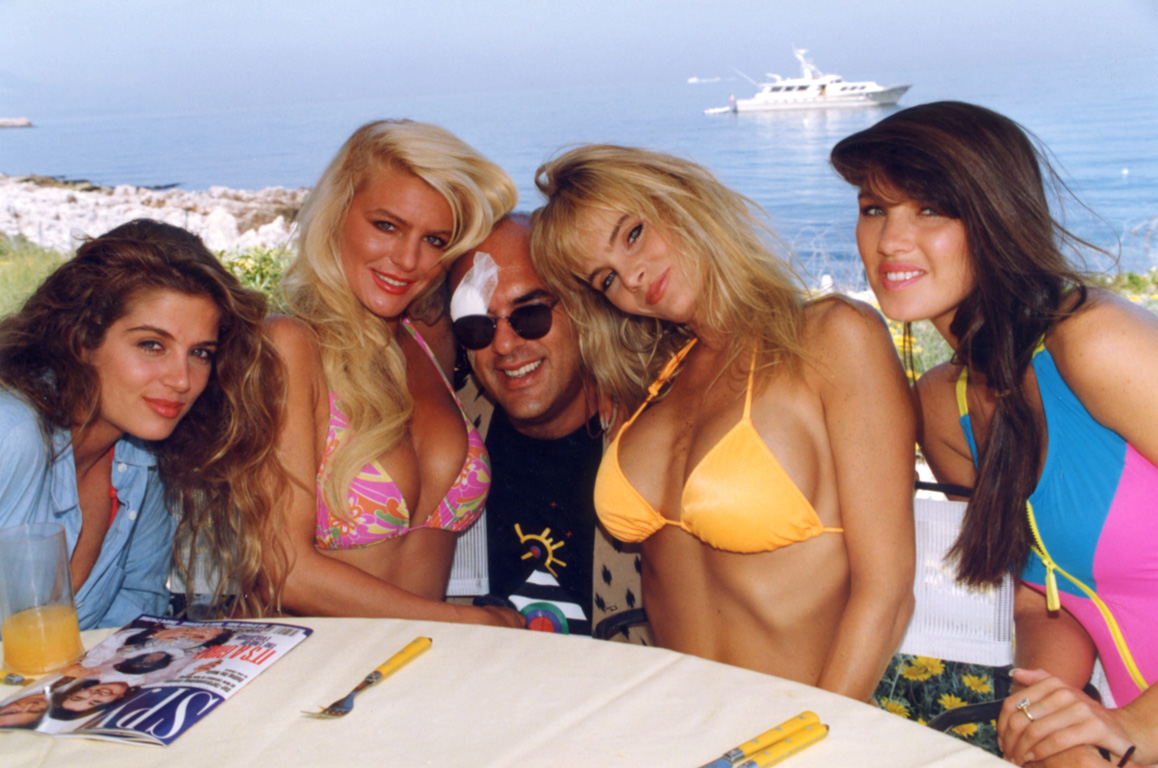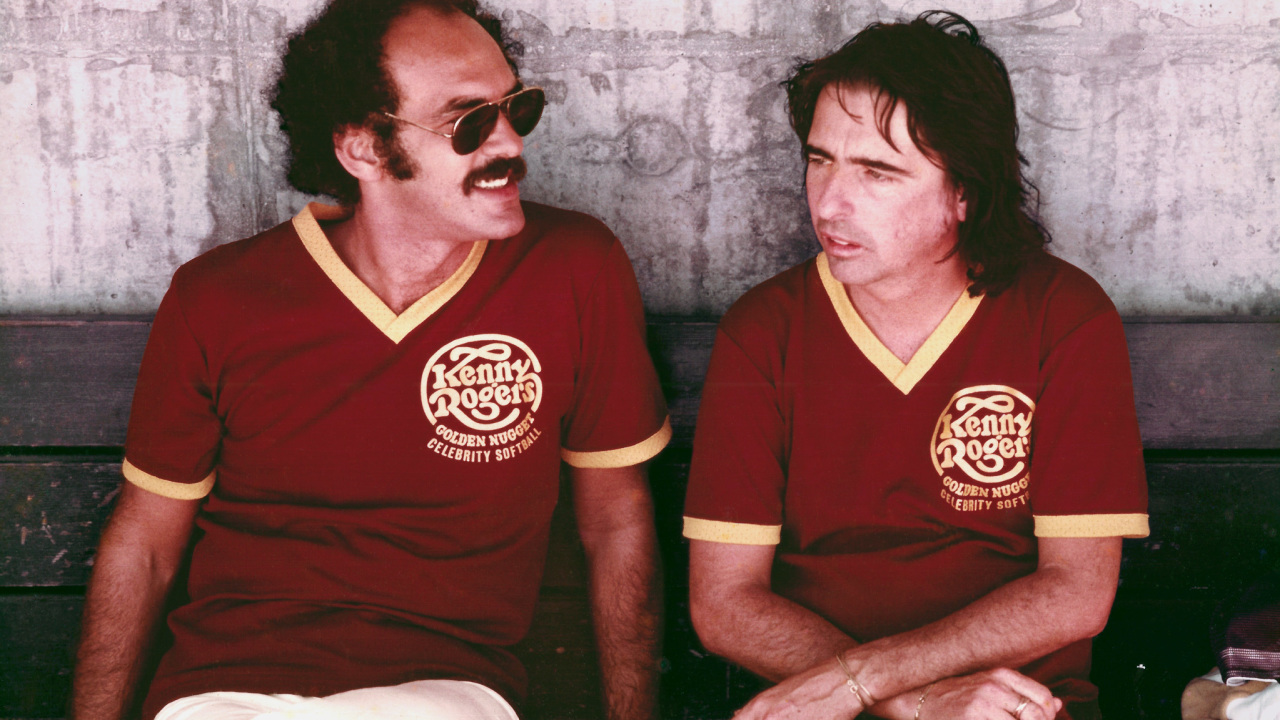He’s used to being an éminence grise, standing on the sidelines of rock ‘n’ roll quietly and effectively pulling the strings. Now though, Shep Gordon has allowed Mike ‘Austin Powers’ Myers make a film about his life, and he’s having to get used to the spotlight.
“I had some major surgery a few years ago,” Gordon tells Classic Rock with his trademark chuckle, “and Mike called while I was in the hospital feeling sorry for myself. I said yes to the movie, after saying no for a long time. And here we are.”
A remarkable biopic, Supermensch: The Legend Of Shep Gordon plays out in just the way that Gordon has lived his life. His story is rich in incident. As a young man arriving in LA in the mid 60s he got into a fight with Janis Joplin, whereupon Jimi Hendrix got talking to him and suggested that he go into talent management. Cue 40-plus drug-fuelled, model-strewn years spent brokering lucrative deals for and rubbing shoulders with the showbiz elite, be it on private jets or at the Playboy Mansion.

Gordon’s best known as Alice Cooper’s manager (it was he who introduced that chicken during Cooper’s show at the Toronto Rock And Roll Revival in ‘69), but his portfolio’s heaving with disparate, A-list names: Pink Floyd, Blondie, Teddy Pendergrass (who let Gordon manage him after being out-consumed by him during a drug bender), Groucho Marx, Raquel Welch and Michael Douglas (“I tell Shep things I don’t tell my wife”). Later on in his career he created the celebrity chef phenomenon, and prepared meals for the Dalai Lama.
“I’ve been lucky to be next to some great opportunities,” says Gordon, from his beachside home in Maui, “and I take advantage of them. I won at Cannes film festival [he produced Ridley Scott’s 1972 movie The Duellists]. I got taken to a restaurant and [legendary chef] Roger Vergé came in, and that started that part of my career. Sharon [Stone, an ex-girlfriend] introduced me to the Dalai Lama who became part of my life.”
The film’s primarily a rip-roaring, celeb-spangled ride through Gordon’s life and times, but it has flashes of intimacy too. While hearing Sylvester Stallone and Myers himself expound on his big-hearted brand of menschkeit, the most poignant moment comes when Mia, the daughter of an ex-girlfriend, is killed in a road accident, and Gordon gladly takes responsibility for Mia’s four children. All grown up now, they explain just what a rock he’s been for them in the years since, and trump the Hollywood hyperbole in the process.
“I’ve made my living by making other people famous,” he says. “But fame is an empty thing. The majority of people I’ve worked closely enough with to feel their pain were live entertainers. Most of them have some hole somewhere in them that they need people to tell them that they’re great. It’s usually not a rational thing that drives them hard to be able sell out big arenas. But after you get to the top of your game you have the same hole there. it doesn’t really mean anything, it’s a false filling up of the hole. You could have a million people clapping, you still go to bed at night with you. Then you start using drugs and liquor as crutches, because the pain’s not going away.”

With the use of copious, colourful footage the movie picks up on Gordon’s canny management style and knack for publicity. He directly helped the likes of Cooper to make the transition from dollar-ticket three-on-the-bill club nights to sold-out stadiums in the 70s. “We hit that first wave of arena shows. Ticket prices were small but it was moving out of the Fillmores and into the Madison Square Gardens. It was becoming a pop culture phenomenon rather than an FM radio phenomenon. With Alice it became important to promote a rock star image. We flaunted success rather than hid from it, that was more the tradition of The Doors and The Grateful Dead. We decided to be all-American rock ‘n’ roll, all the ugliest stuff of America – billion dollar babies, diamonds, limousines, that was part of what it was.”
Though pretty much retired now, he still takes an interest in the business he helped to shape. He sees parallels between his management style and that of those handling Lady Gaga and Dave Grohl. He laments aspects of ‘progress’ in music. “It’s harder for the audience to discover artists today. There’s used to be FM radio in America, pirate radio in London, and record stores. Now there’s no lighthouses.”
He also laments the modern perception of fame, one often divorced from real talent. “Celebrity used to come out of your craft. If you were like Alice or [master chef] Anton Mosimann and successful at your craft, then you became famous. I talk to kids now and they don’t want to play clubs, they want to be on The Voice. It’s fame for fame’s sake, and I don’t know where that ends up. Everybody thinks there’s a golden key to the entertainment business, but there isn’t. It’s about taking rejection, working harder than the next guy, and having some innate talent.”
And this mensch knows what he’s talking about.
_The UK premiere of SUPERMENSCH: THE LEGEND OF SHEP GORDON plus Q&A will be at BFI Southbank on Tuesday 15 July. See [www.supermenschthemovie.com](http://www.supermenschthemovie.com/) for more details._

